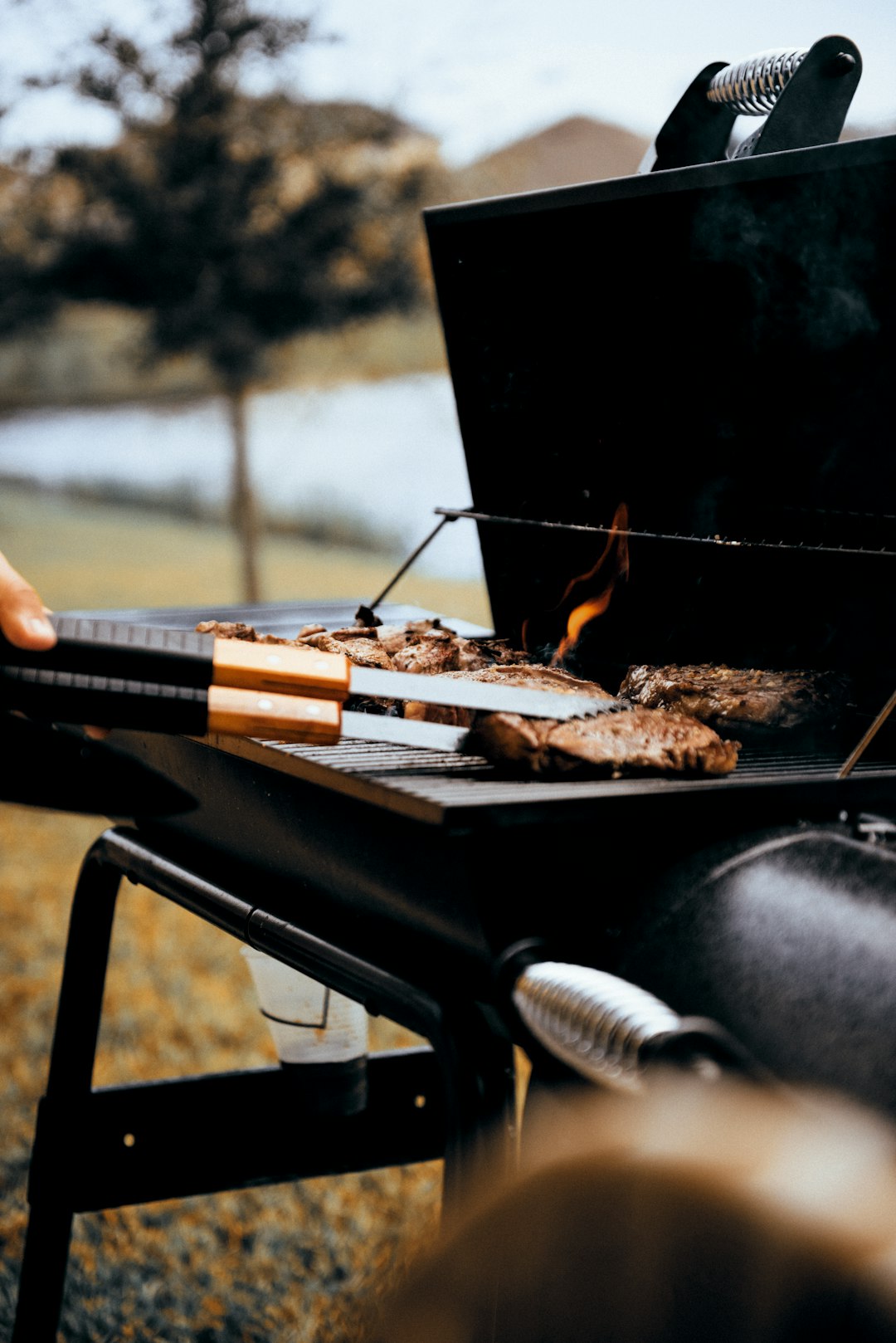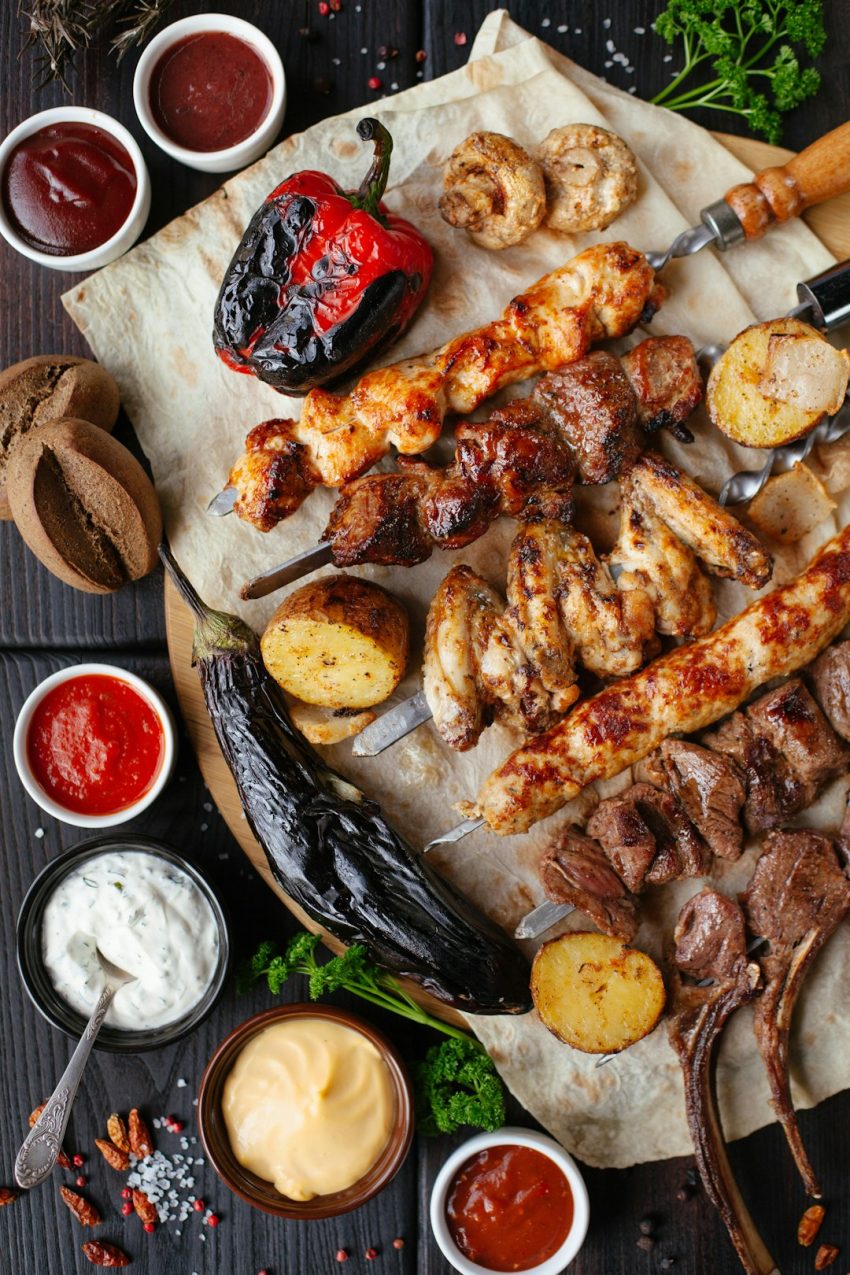Selecting the right meat (lean cuts like sirloin or round steak) is key for an exceptional BBQ jerky recipe, focusing on tenderness and flavor. Marination involves balancing acids (vinegar, citrus) and enzymes (from fruits, spices) to soften proteins, enhancing texture and flavor absorption. This process, crucial for BBQ jerky success, results in a tender, flavorful product loved by BBQ enthusiasts.
Take your BBQ jerky game to the next level with our comprehensive guide! Discover the secrets to crafting mouthwatering homemade BBQ jerky with perfect textures and flavors. From selecting the right meat, understanding the science of marination, to creating custom marinades, we’ve got you covered. Learn how acids and enzymes work their magic, and master techniques for effective marinating and drying. Unleash your inner BBQ master and savor the taste of a superior BBQ jerky recipe!
- Choosing the Right Meat for BBQ Jerky
- – Discussing types of meat suitable for jerky (beef, chicken, turkey) and their unique marinating needs.
- The Science Behind Marination: Acids and Enzymes
- – Explaining how acids (like vinegar or lemon juice) and enzymes (from fruits or spices) break down protein, making the meat tender.
Choosing the Right Meat for BBQ Jerky

When crafting a BBQ jerky recipe, selecting the ideal meat is a fundamental first step. Opt for lean cuts like sirloin or round steak to ensure your jerky turns out crisp and not excessively greasy. These cuts have less fat content, making them easier to marinate and dry, resulting in a more flavorful final product. Choosing the right meat will significantly impact the texture and overall taste of your homemade BBQ jerky.
Additionally, consider the desired tenderness. Younger meats may require longer marinading times or even specific enzymes (like those found in pineapple or papaya) to break down tough muscle fibers. Older cuts might be more readily available and cost-effective but may need a different approach to achieve the same level of tenderness as their younger counterparts.
– Discussing types of meat suitable for jerky (beef, chicken, turkey) and their unique marinating needs.

When it comes to crafting the perfect BBQ jerky, choosing the right meat is a crucial first step. Beef is a classic and popular choice for its rich flavor and tenderness when marinated correctly. Chicken and turkey are also excellent options, offering a lighter alternative with a distinct, flavorful result. Each type of meat has unique properties that influence how it should be marinated. For instance, beef benefits from a blend of acidic ingredients like vinegar or citrus juices to break down proteins, while chicken and turkey may require a longer soaking time in a marinade to ensure the meat stays moist during the drying process.
In terms of specific marinades, a BBQ jerky recipe for beef might include a combination of soy sauce, garlic, brown sugar, and various spices like paprika, cumin, and black pepper. Chicken or turkey marinades can embrace herbs de Provence, lemon zest, extra virgin olive oil, and a touch of hot sauce for a spicy kick. The key is to experiment with different ingredients, considering the tenderness and flavor profile you desire, resulting in a delicious BBQ jerky that satisfies your taste buds.
The Science Behind Marination: Acids and Enzymes

The science behind marination involves a fascinating interplay of acids and enzymes, key players in transforming raw meat into mouthwatering BBQ jerky. Acids, like those found in lemon juice or vinegar, soften proteins by breaking down their structures. This not only improves texture but also enhances flavor absorption. Enzymes, naturally present in fruits and spices, further aid in protein denaturation, accelerating the marinating process and contributing to the tender, juicy qualities of jerky.
Understanding this chemical dance allows you to craft a superior BBQ jerky recipe. Acids help penetrate meat more effectively, while enzymes ensure that flavors infuse deeply. Experimenting with different acid sources and enzyme-rich ingredients can lead to unique flavor profiles, making each batch of DIY BBQ jerky a delightful discovery.
– Explaining how acids (like vinegar or lemon juice) and enzymes (from fruits or spices) break down protein, making the meat tender.

The magic behind creating succulent, tender BBQ jerky lies in the marination process, where a clever combination of acids and enzymes works its wonders. Acids like vinegar or lemon juice play a pivotal role in breaking down the protein structure within the meat. Over time, these acids gently soften the fibers, making the jerky more forgiving when cooked. Similarly, enzymes derived from fruits or spices accelerate this protein breakdown. Think of it as nature’s way of tenderizing the meat without the need for complex tools or techniques. This natural process ensures that each piece of jerky becomes deliciously tender and flavorful, a must-have in any BBQ jerky recipe.
